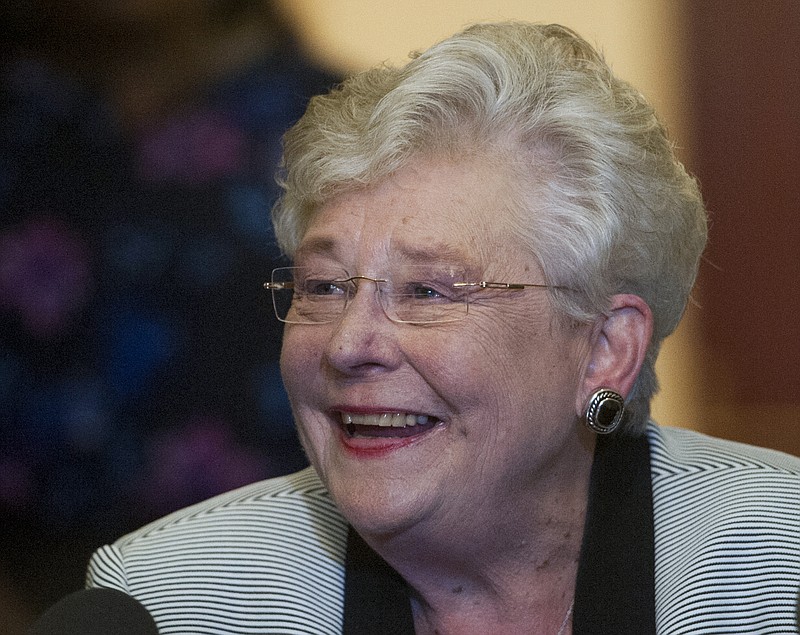MONTGOMERY, Ala. - The election to fill Jeff Sessions' former U.S. Senate seat will be moved up to this year, Alabama's new governor announced Tuesday, as she quickly reversed one of her predecessor's most controversial political decisions.
In one of her first major acts, Gov. Kay Ivey undid former Gov. Robert Bentley's plans to wait until 2018 to hold the election to fill the seat for the remainder of Sessions' term.
In press conference Tuesday, Ivey said she believes the law requires the election to be held as soon as possible to allow the Alabama voters to select their senator.
"This special election will remove any cloud of doubt that might have been associated with the previous process used by the former governor," Ivey said. "I just know it is the right thing to do."

The new schedule sets an Aug. 15 primary and, if needed, a Sept. 26 runoff. The general election will be held Dec. 12.
Bentley had named state Attorney General Luther Strange to the U.S. Senate seat that was vacated when Sessions became the nation's attorney general under President Donald Trump's administration. Bentley declined to call a special election, citing the cost, and said the election would be held with the regularly scheduled 2018 elections.
Bentley's decision was controversial since Strange's office had indicated it was investigating Bentley. Critics, including the state's Legislative Black Caucus, also said Bentley was giving his appointee an unfair advantage of incumbency by allowing Strange to hold office for a year before facing election.
Ivey was sworn in as governor last week after Bentley resigned rather than face his impending impeachment and pleaded guilty to two misdemeanor campaign violations that arose during an investigation of his alleged affair with a top aide.
Under Alabama law, the governor makes an interim appointment when there's a Senate vacancy. The 1915 state law says if the vacancy occurs more than four months before a general election, the governor of Alabama shall "forthwith order an election" but does not specify a time frame beyond that.
Ivey said "following the law trumps the expense of a special election."
The accelerated schedule kicks election season for the powerful position into overdrive. Candidates must qualify with political parties by mid-May, Secretary of State John Merrill announced Tuesday.
Strange quickly released a statement saying he's "ready to run whether the election is next month or next year."
"As the only announced candidate for this office, I will spend the next several months being the best Senator I can be, upholding Alabama values and working with President Donald Trump to drain the swamp and help make America great again. The people of Alabama deserve nothing less and ultimately it will be up to them to decide who will represent them in Washington."
Whoever wins the post must run again in 2020, when Sessions' current term would have ended.
Rep. Chris England, a Democratic legislator who had criticized Bentley's plan to hold the election in 2018, praised Ivey's decision.
"Governor Ivey's announcement this morning puts us one step closer to turning the page on this ugly and shameful period in our state history. This demonstrates a departure from the backroom politics that we have seen for too long in Montgomery," England said.
